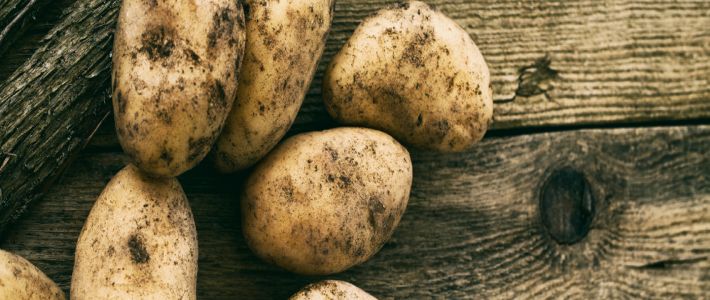
Visit our other sites
-
Fapas - Proficiency Testing
Globally recognised provider of proficiency tests, running over 400 tests annually across an extensive range of matrices and analytes
-
Great Crested Newts Testing
A single sample taken by an ecologist at any time during the newt breeding season can determine their presence or absence, saving you time and money

Method Used
ELISA
Standard Turnaround Time
40 working days
Viruses are some of the most economically damaging diseases affecting potatoes and a major reason for crops failing seed certification. This is our standard growing on test for PVY (all strains) and costs £320 + VAT*. Understanding what virus loading is in the seed to be planted is critical in managing crop outcomes. As these viruses are predominantly aphid transmitted, the use of Fera's insect monitoring service will help understand the risks and provide vital information for the consideration of treatments.
*Off peak season testing price for March to August inclusive.
Other strains/viruses that can be analysed include; PLRV, PVYO, PVYN, PVA, PVV, PVX, PVM, PVS and PMTV. Each additional virus/strain adds £87 (excl. VAT) to the total cost. If you require additional viruses to be tested with PVY - you must select the relevant test denoting how many viruses you would like testing. When you have selected the correct number of viruses you require but must specify in the Notes section which viruses you want when adding in your sample information.
PVY
Potato virus Y is transmitted by aphids and is responsible for significant yield loss across a range of potato varieties. The severity of the yield loss is directly attributed to the strain, timing, and resistance of the potato.
PLRV
Potato leafroll virus is transmitted by aphids, and can cause vast swathes of damage, as well as having the ability to spread over relatively large distances in a short time-scale. Symptoms include leaf curling and necrosis, which dramatically affects yield quality and quantity.
PVYO
The common or ordinary strain of PVY (PVYO) causes a systemic mottle in potatoes and tobacco. Isolates of PVY that cause systemic veinal necrosis in tobacco belong to the PVYN strain group, which produces milder symptoms in potato than does PVYO.
PVYN
Potato Virus Y (PVY) is a monopartite, single stranded RNA virus that infects mainly Solanaceous plants including, potato, tomato, pepper, tobacco and eggplant. There are multiple strains of the virus including the common strain, PVYO, which causes mosaic symptoms in most hosts.
PVM
Potato PVM belongs to the Carlavirus group like the Potato virus S (PVS). It has a limited range of natural hosts. Most susceptible species belong to the Solanaceae, of which the potato is the most important. But experimentally, PVM has been transmitted to some Chenopodiaceae and Fabaceae. It is transmitted in a non-persistent manner by the aphid Myzus persicae, less efficiently by Aphis frangulae.
PVA
Potato virus A is also aphid-transmitted and can cause significant symptoms resulting in yield reduction in susceptible varieties, especially when in combination with other plant viruses.
PVV
With minimal visual symptoms this virus is difficult to detect. When infected, potato plants are immediately more susceptible to disease, especially when in combination with other plant viruses. PVV is transmitted by aphids, which can result in large scale infection if not managed correctly.
PVS
Potato virus S (PVS) is a virus causing very mild (often not visible) symptoms in a potato crop. Its effect on a crop may be enhanced with a co-infection (mixed infection) with other viruses such as Potato virus Y (PVY) and Potato Virus.
PVX
Although some potato varieties are resistant to PVX, when in combination with a range of other viruses severe symptoms can be found. PVX may be extremely prevalent due to the mild or non-existent symptoms associated with infected potatoes.
Please see sample submission form for full details including information on number of tuber samples required.
Potato Sample Submission Form
When sending plant pathogens and invertebrate samples from outside England and Wales for testing please email the Crop health team (crophealth@fera.co.uk) who will issue you with the relevant Letter of Authority to ensure your samples are not delayed upon entry to the UK.
Please contact us to discuss volume discounts.
| Detail | Specification |
|---|---|
Standard Turnaround Time | 40 working days |
Parameters tested | Virus |
Method Used | ELISA |
Standard growing on test for virus in Potato (PVY + 4 viruses)
Add Samples
Your Current Samples
Please review your sample(s). Additional sample charges may apply where applicable.
There are no samples associated with this product at this time

Copyright © 2025 Fera Science Limited (“Fera”). All rights reserved.
For further information about how Fera uses any personal data collected from you, please see our Privacy Notice at www.fera.co.uk/privacy-policy.




